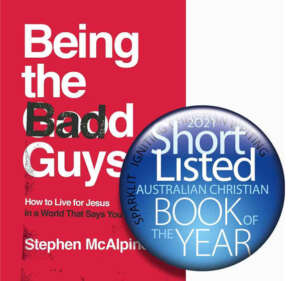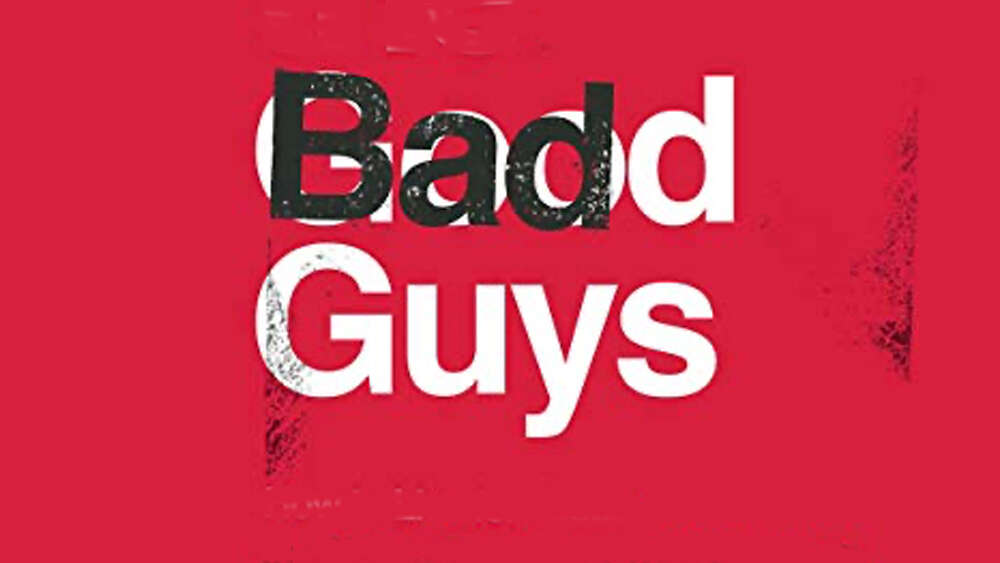Notice how commentators fell over themselves this week to applaud American champion gymnast Simone Biles for her decision to pull out of the Olympics to safeguard her mental health?
Perhaps predictably, right-leaning Piers Morgan in the Daily Mail went out on a limb, portraying Biles as selfish for quitting in the face of adversity.
But the overwhelming reaction to Biles’s shock move was glowingly positive. USA Today called her decision “important” and a “powerful message”. The New York Times lauded the 24-year-old for putting her “mental health first and the expectations of others, at best, second.”
Now I’m not saying Biles did the wrong thing in putting her mental health before the success or failure of the US gymnastic team. Far be it from me or anyone to make such an assessment of someone on such a critical personal issue.
In fact, I probably wouldn’t have given it a second thought if I hadn’t just read a chapter about the lost art of self-denial in Stephen McAlpine’s book, Being the Bad Guys.
In developing his theme that authenticity and self-fulfilment are the supreme goals of today’s secular society, he cites the case of British TV personality Phillip Schofield, who was universally acclaimed for his courage in coming out as gay on live TV in February 2020.
Commentators rushed to say they were proud of this married man of 27 years for being honest with himself and accepting his true and authentic self.
“In our culture being true to oneself is the goal of life – the pathway to happiness,” writes McAlpine in a chapter called ‘Self-Denial versus Self-Actualisation’.
Jesus is explicit that self-denial, not self-fulfilment, is the path to life
“This mantra is never challenged, let alone held up to scrutiny. Any idea that Schofield might refuse to come out or might put his desires second for the sake of being true to his marriage and family is not in play. It would be an inauthentic act, given the a priori conviction that self-fulfilment is our highest good.”
McAlpine then explains how self-denial is not just in the fine print of Christianity.
“Jesus is explicit that self-denial, not self-fulfilment, is the path to life. Jesus calls his disciples to make the costly decision to take up their cross and die to themselves in exchange for the finding and saving of their lives. There is great reward in self-denial. It’s just not now, or at least it is not fully now.”
Christians are equally susceptible to believing in the “best life now” project, he writes, going on to list the myriad self-fulfilment struggles that Christians contend with … such as the right to be right, now, an attitude that leads to bitterness and unforgiveness and destroys many congregations.
“Getting what we want now seems preferable to the implicit answer to Paul’s question: “Why not rather be wronged? “ (1 Cor 6:7)
“We must say no to both secular and sacred self-fulfilment agendas, contest any vision of the good life that is grounded in self-fulfilment and self-expression rather than self-denial. The gospel will lead to human flourishing but it has a different understanding of how to achieve such flourishing.”
The other concept in play in this narrative, he claims, is authenticity – with the world accepting that Schofield’s authenticity is displayed by his coming out, rather than by putting his wife’s desires instead of his own.
Yet, McAlpine says, Jesus was the most authentic person ever.
“He was concerned not for his individual good but for the good of the community around him. He put aside his rights now for the sake of glory later. He rejected any hypocritical veneer and displayed genuine godliness and humility it is a tragic irony that by rejecting Jesus’ call to authenticity we will forfeit the life that Jesus offers.”
For McAlpine, grounding our identity in Jesus is the key to being the best possible bad guy in a culture which has changed its view of Christianity from being moribund and empty to being positively toxic and dangerous in areas of sexual ethics and gender.
Christians have progressed from being the good guy to just one of the guys – one option among many – to being the bad guy.
“… biblical ethics are not seen merely as laughable or outdated or repressed but as shameful, harmful and repressive. Our views are not merely seen as wrong but dangerous.”
The best way to resist the sexual mores of our progressive culture, he writes, is not to push hard to repeal laws or create enclaves where we can practise our faith in peace. Nor should we play the victim in this “anti-Christian push to relegate the foundational story of the West to the margins.”
He then presents some ideas of how the church can move forward as a creative minority. Embracing the margins rather than fighting for the centre not only takes the heat out of the debate. It also gives us a chance to observe the bigger picture and prepare to welcome what he calls a “tsunami of the broken and wounded who will wash up on our shores”.
“When the actual victims of the culture start looking for grace and solace from its bruising brutality, we should make it easy for them to conclude that we have been the ones to provide that all along.”
 Being the Bad Guys: How to Live for Jesus in a World That Says You Shouldn’t by Stephen McAlpine is available through Koorong.
Being the Bad Guys: How to Live for Jesus in a World That Says You Shouldn’t by Stephen McAlpine is available through Koorong.
Email This Story
Why not send this to a friend?


